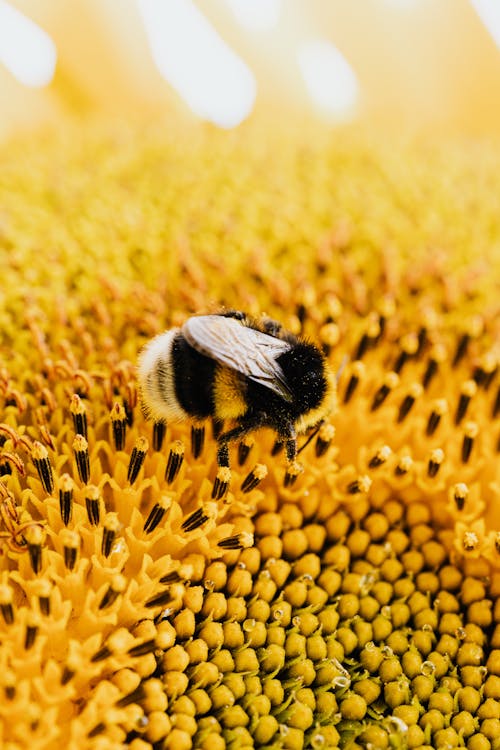The Importance of Pollinators: How Bees and Butterflies Sustain Our Ecosystems
Pollinators play a critical role in maintaining the health of our ecosystems. Among these vital creatures, bees and butterflies stand out as the unsung heroes of pollination. Their activities not only ensure the reproduction of many plants but also support the food supply and biodiversity. In this blog, we will explore the importance of pollinators, focusing on bees and butterflies, and how they sustain our ecosystems.
The Role of Pollinators in Ecosystems

Pollinators are essential for the reproduction of over 85% of the world's flowering plants. They transfer pollen from the male parts of a flower to the female parts, facilitating fertilization. This process is crucial for the production of fruits, seeds, and the continuation of plant species.
Bees: The Super Pollinators
Bees are perhaps the most efficient and well-known pollinators. Here’s why they are indispensable:
- Pollination Efficiency: Bees have specialized body structures, such as hairy bodies, that effectively trap pollen. They can visit hundreds of flowers in a single day, making them incredibly efficient pollinators.
- Crop Production: Bees are vital for the pollination of many crops, including apples, almonds, and blueberries. Without bees, our food supply would be significantly impacted.
- Biodiversity: By pollinating a wide variety of plants, bees help maintain biodiversity. This diversity is essential for resilient and robust ecosystems.
Butterflies: The Graceful Pollinators
Butterflies may not be as efficient as bees, but they play a unique and valuable role in pollination:
- Pollination Diversity: Butterflies are attracted to brightly colored flowers and can pollinate plants that bees might overlook. This diversity in pollination helps ensure the survival of a wide range of plant species.
- Indicator Species: Butterflies are sensitive to environmental changes, making them excellent indicators of ecosystem health. A decline in butterfly populations often signals broader ecological issues.
Why Pollinators Are Crucial for Human Survival

Pollinators are not just essential for the environment; they are also crucial for human survival:
Food Security
A significant portion of the human diet depends on pollinated crops. Fruits, vegetables, and nuts are all reliant on pollinators. Without them, our food variety and availability would drastically decrease, leading to higher food prices and potential shortages.
Economic Impact
The economic value of pollinators is immense. In the United States alone, bees contribute to over $15 billion in crop production annually. The decline of pollinator populations could have severe economic repercussions for farmers and the agricultural industry.
Ecosystem Services
Pollinators contribute to the health of ecosystems, which in turn provide essential services such as air and water purification, soil fertility, and carbon sequestration. These services are vital for sustaining life on Earth.
Threats to Pollinators
Despite their importance, pollinators face numerous threats:
Habitat Loss
Urbanization, deforestation, and agricultural expansion have led to significant habitat loss for pollinators. Without suitable habitats, bees and butterflies struggle to survive.
Pesticides
The widespread use of pesticides in agriculture has detrimental effects on pollinator populations. Pesticides can kill pollinators directly or weaken them, making them more susceptible to disease and environmental stress.
Climate Change
Climate change affects the availability of flowering plants, alters habitats, and disrupts the synchronized timing between plants and their pollinators. These changes pose serious challenges for pollinator survival.
How to Protect Pollinators

Protecting pollinators requires concerted efforts from individuals, communities, and governments:
Planting Pollinator-Friendly Gardens
Planting a variety of native flowers that bloom at different times of the year can provide essential food sources for pollinators. Avoiding the use of pesticides and providing habitats such as bee hotels and butterfly houses can also support pollinator health.
Supporting Sustainable Agriculture
Choosing organic and sustainably produced foods helps reduce the demand for harmful pesticides and promotes agricultural practices that are friendly to pollinators.
Advocacy and Education
Raising awareness about the importance of pollinators and advocating for policies that protect their habitats and reduce pesticide use are crucial steps in ensuring their survival.
Conclusion
Bees and butterflies are vital to the health of our ecosystems and our own survival. They play a critical role in pollination, supporting biodiversity, food security, and the economy. Protecting these essential pollinators from threats such as habitat loss, pesticides, and climate change is crucial. By taking steps to support and protect pollinators, we can ensure the continued health and resilience of our ecosystems.

 Cricket Score Counter
Cricket Score Counter Heads or Tails
Heads or Tails
You have not logged in, please Login to comment.